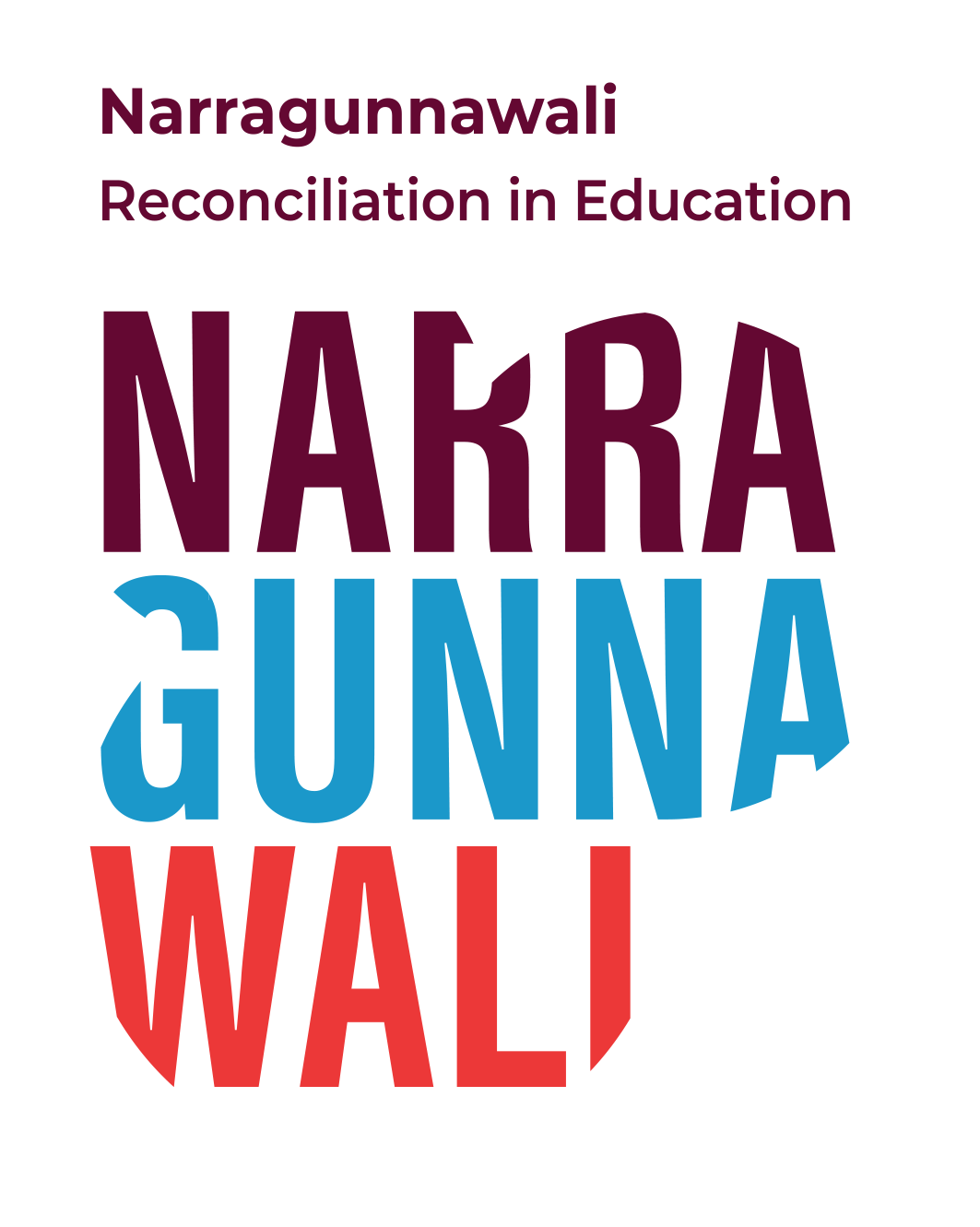The Narragunnawali program can support pre-service teachers and educators to take reconciliation action before they enter their future classrooms, schools and educational communities.
The 3Rs platform; Respect, Relationships, Reconciliation, equips current and future teaching staff with key concepts around reconciliation and Aboriginal and Torres Strait Islander people and perspectives, and their ongoing importance. It was developed by the Australian Council of Deans of Education through the Australian Indigenous Lecturers in Teacher Education Association.
Here are some suggestions on how Initial Teacher Education (ITE) lecturers, tutors and students can get involved with Narragunnawali and reconciliation in education.
-
Link to the Narragunnawali platform on your websiteLink to the Narragunnawali: Reconciliation in Education platform (https://www.reconciliation.org.au/our-work/narragunnawali-reconciliation-in-education/) on your website or open-source e-learning management system (e.g. Moodle or iLearn).
Contact us to request copy or images.
-
Incorporate Narragunnawali resources into lectures and tutorials
As starting place, the curated Reconciliation Teacher Toolkit includes a selection of core professional learning resources and reference materials that can support pre-service teachers in their culturally responsive pedagogical development, and to drive reconciliation in their classrooms of the future.
Reconciliation is everyone's business, and for everyone's benefit. The wider Reconciliation Toolkits support understanding of the different roles within an education community and how each can engage with reconciliation.
Use the self-led and self-paced professional learning resources to:
• critically evaluate and strengthen teaching materials and approaches
• align approaches with reconciliation concepts, language and action.The subject-specific guides support students to think about how to embed reconciliation and Aboriginal and Torres Strait Islander histories, cultures and contributions into different teaching areas.
The Terminology Guide supports students to communicate respectfully and understand that language is active and impacts attitudes, understandings, and relationships.
ITE students may also find the reflective exercises in the RAP Actions useful for learning and assessment. Each RAP Action relates to a requirement that progresses reconciliation in a school or early learning service’s Reconciliation Action Plan (RAP). Watch the 14 required RAP Action films.
Students could also look at the schools and early learning services that have been nationally recognised for their outstanding commitment to reconciliation in education shown through the Narragunnawali Awards program. Watch the films from past Awards finalists. -
Reconciliation Action Plans (RAPs) for educational institutions
EARLY LEARNING, PRIMARY AND SECONDARY SCHOOLS
A Reconciliation Action Plan (RAP) is a formal statement of commitment to reconciliation. Schools and early learning services develop and maintain their RAPs through the Narragunnawali platform. The Narragunnawali RAP framework shows how the RAP Actions develop relationships, respect and opportunities in the classroom, around the school and with the community.ITE students should know about the purpose and process of developing RAPs through Narragunnawali. It might encourage them to participate in – or even drive – RAP initiatives in their practical teaching experience and teaching careers. The Who has a RAP? map shows schools and early learning services across the country with RAPs.
Tertiary Educational Institutions
Tertiary educational institutions develop RAPs through our broader RAP program. There are four types of RAPs: Reflect, Innovate, Stretch or Elevate. You can also search for examples of tertiary educational institutions with a published RAP. -
Join us for a Narragunnawali webinar or workshop
We run regular webinars and workshops which you can register for and join live or watch later.
Contact us to request a tailored webinar, workshop or guest lecture from a Narragunnawali team member.
-
Engage with some suggested readings and resources
Incorporate Reconciliation Australia resources into teaching, learning and reflecting on the context and concept of reconciliation in education.
• The State of Reconciliation in Australia Report (2016) (and summary)
• The State of Reconciliation in Australia Report (2021) (and summary)
• Australian Reconciliation Barometer Report (2022) (and summary)
• videos on the Reconciliation Australia YouTube channel.Academic texts that have important relationships to reconciliation-in-education:
• critical-reflective practice
• place-based pedagogies
• whiteness and critical race theory
• high expectations relationships
• Indigenising and decolonising curricula
• rights-based and social justice approaches to education
• ethics in Aboriginal and Torres Strait Islander research, learning and teaching
• resilience theories and threshold concepts.Also see 'The Importance of Reconciliation in Education', compiled as part of the ANU-CSRM’s external Evaluation of Narragunnawali: Reconciliation in Education.
-
Request a resource, assessment task, or lecture/tutorial plan review
Contact us to ask about:
• reviewing your resource
• how your resource might support reconciliation in the lectures, tutorials or ITE assessment tasks. -
Share your ideas with us!
We love to hear feedback and ideas from educational jurisdictions, academics, teachers, educators, parents, students and community members.
Your feedback is at the core of the Narragunnawali program’s development. Our team is committed to ensuring our work is as relevant and responsive as possible.
Contact us to share any more ideas about how ITE lecturers, teachers and students can engage with us and reconciliation broadly.



